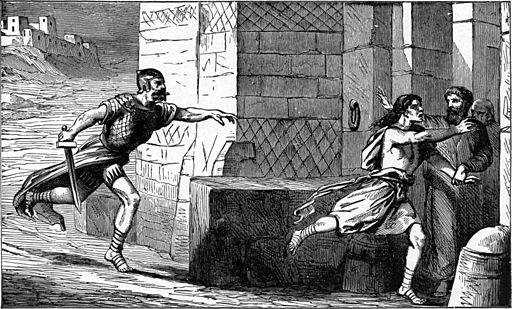Now God is telling Moses to explain to the people how things will be when they enter the Promised land.
They are to divvy up the land. Moses is very specific about laying down borders. For example, “from Hatzar Einan to Shefam” or “down to the Jordan.”
Then Moses tells people how they are to distribute the land within the tribes. He tells them to pick one person from each tribe to “arrange inheritance” of the land. In other words, each tribe has their own land agent: Caleb for the tribe of Yehuda, Elidad for the tribe of Benjamin, and so on.
There follow precise instructions about what to do with a person who kills another person without meaning to. Six cities of refuge are to be set aside for accidental killers. If a person kills someone without meaning to, that person can go to one of these cities. However, you can’t just say “Oops it was an accident.” If you hit someone with an iron instrument, that’s murder. If you clobber someone with a big stone in your hand, that’s murder. If you whack someone with a heavy stick, that’s murder. If you’ve been lying in wait for someone, that’s murder.
BUT if you were not enemies with this dead person and you happened to throw something or drop it on somebody by accident, you are not a murderer. The community is to rescue you and bring you to a city of refuge.
Now if you leave this city of refuge and the relative of the dead guy happens to find you, you’re toast. The relative has the right to kill you.
On the flip side, if someone IS a murderer, the relative can’t accept a bribe to let that person live. The person must be put to death.
The parsha ends with a decision that widows or divorcees who inherit land must marry within their clan so that the land stays within the tribe.
Food for Thought
How do the insights from today’s parsha affect your outlook on today’s legal system?

